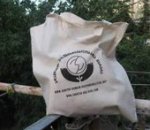
| Experience sharing
|
Networking and promoting the Charter process | |
|
A partner organization of the Charter of Human Responsibilities Philippine Facilitation Team, the Center for Positive Futures, is a partner in the Global Classroom Initiative (GCI) project initiated by Monde Pluriel, a France-based non-governmental organization. Monde Pluriel hopes to raise awareness among different sectors of society on global citizenship. The GCI aims to promote (...) | |
|
It was decided to hold a Forum-workshop that would make it possible to hear various experiences on responsibility for building a dignified life for all. In this perspective, it was decided to invite the participation of civil servants, social and community organizations, students, teachers, NGOs, business persons, unions, etc.
Forum objectives
To discuss citizen responsibility in building (...) | |
|
Summary
Apology to Australian Aboriginal People part of a flow of Government Apologies in the Pacific Region, including to Samoan people, and to Mãori Tribes.
Apologies are a recent response to support the reconciliation process. They are intended to heal past wrongs on the part of governments who have exercised state powers to destroy the cohesion of indigenous peoples, or suppress (...) | |
|
Nina Gregg and Rachel Trajber took part in the November 2007 annual conference of the North American Association of Environmental Educators. The conference, which was attended by more than a thousand teachers, advocates and policy makers, offered workshops, presentations, demonstrations, scholarly papers, roundtables and strategy sessions.
Nina and Rachel led a workshop on “Using the Charter (...) | |
|
The Clean up the Med initiative is the largest existing volunteer Mediterranean clean-up operation and has been conducted by the Italian organization Legambiente since 1995. The European Charter team is now involved in it, along with more than 500 authorities, parks, schools, and organizations from 22 countries. On May 25, 26 and 27, 2007, waste was removed from more than 1,200 beaches and (...) | |
|
The idea to share knowledge and techniques is present in many experiences of self-managed training that fit in the concept of popular education, but what differentiates the school of multiversity to other initiatives?
(the whole text is in Spanish only) | |
|
1. Introduction
Last May 7-9, 2006, the multisectoral confederation SANLAKAS held a YOUTH CAMP FOR CULTURAL DEVELOPMENT held in Tanza, Cavite. This was participated in by 43 youth leaders from different organizations in Metropolitan Manila. The camp activities included Music, Art, Drama, and Communication Workshops, and a discussion of the National Political and Economic Situation and the (...) | |
|
This bilingual questionnaire (English-Arabic) was drawn up with an Egyptian audience, but it can easily be transposed and used in other political and sociocultural contexts. | |
|
“To buy is a political act”. Responsible consumption represents an effort to simultaneously reduce pollution and consumption. The choices we make as consumers are perhaps the easiest and most effective methods we have of making our opinions relevant to corporate and government decision-makers.
Buying is voting
There are 6 billions of us today, half are under 20. Every move we make is (...) | |
|
Felipe and I arrived to a weird little street island located in the middle of a crowded avenue. The weather was hot and windy, and we had trouble trying to attach the banner with a wire to a pole, so it soon flew away. A few sleepy young people from different countries were laying down on the grass, too tired and lazy to even listen to us. The microphone had a stand that could not move, so (...) | |
|
Lille, December 2001: the text of a Charter for Human responsibilities is presented to 400 citizens from 120 countries and 25 social and professional backgrounds during the closing ceremony of the World Assembly organised by the Alliance for a Plural, Responsible and United World. Ethics, individual and collective responsibility, dignity, sustainable peace and common good are at the root of (...) | |
|
Disseminating the principles of the Charter of Human Responsibilities has indeed been a challenging task, especially in the Indian context where the term ‘responsibility’ takes on different connotations. Our first hurdle was to rework the language and even modify it after discussion with groups of people.
Here I am going to talk about how this was done with one group. That of democratic (...) | |
|
Using the Charter of Human Responsibilities for the promotion of gender awareness and equality between men and women in Africa: dialogues organised by a group of women | |
|
”Why applying the principles of the Charter of Human Responsibilities could be a solution to the prevention and management of conflicts in Africa" (Meeting of April 22nd and 23rd, 2004) | |
 |




 News Item on Australian Government Apology to Aboriginal People
News Item on Australian Government Apology to Aboriginal People Using the Charter of Human Responsibilities for Sustainability Education
Using the Charter of Human Responsibilities for Sustainability Education Clean up the Med 2007: The European Team Has Joined the Movement
Clean up the Med 2007: The European Team Has Joined the Movement Code of Ethics for the Youth
Code of Ethics for the Youth An experience with street conversation in Porto Alegre
An experience with street conversation in Porto Alegre
